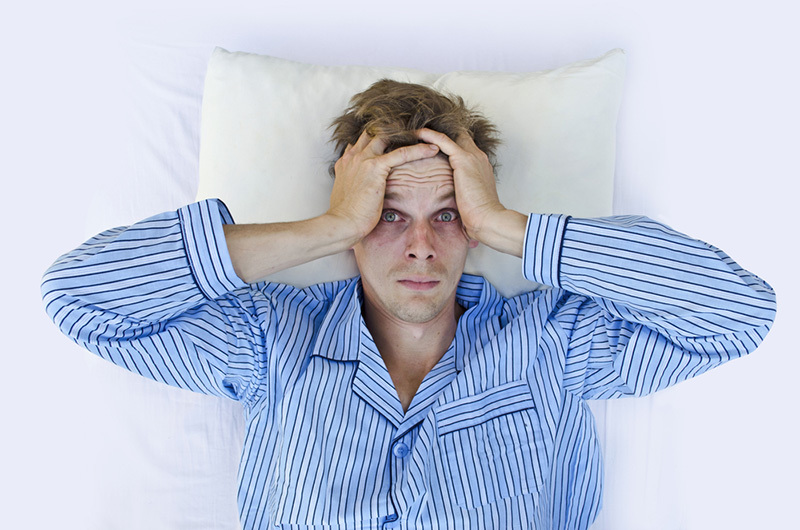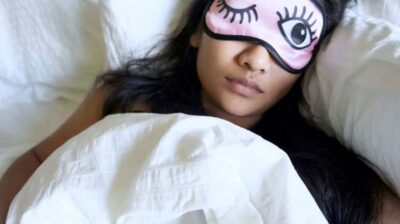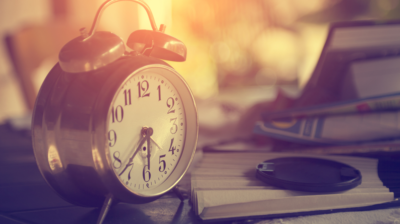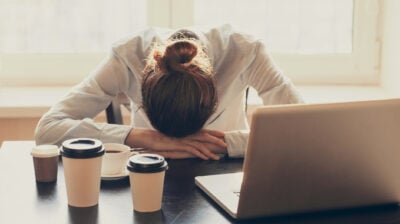I can’t fall asleep
Help for the sleep deprived.

We’ve all had sleepless nights of tossing, turning and clock watching. It’s not much fun, and can be pretty exhausting, but it’s tolerable for a night or two. The real problem starts when it happens frequently.
Why can't I get to sleep?
There are lots of reasons why people may have trouble sleeping, but here are some common ones:
- Worry or stress. This is a biggie. If you’re worried or stressed, you may want nothing more than to sleep away your worries. Unfortunately however, sleep is one of the first things to go when you are worried and anxious. If your mind is racing, then sleep will be hard to come by.
- Pain. Pain is a well known sleep enemy. Simply put, if you’re in pain you won’t be able to sleep well. It’s best to contact your doctor if you have unexplained or untreated pain, as they will likely be able to offer you treatment.
- Poor sleep hygiene. It sounds really boring, but basically sleep hygiene is a fancy way of saying that you should stick to a proper bedtime routine. In other words, you shouldn’t spend the evening surfing the net or playing video games, and then expect to fall asleep ten minutes afterwards. Likewise, you shouldn’t go to bed and get up at completely different times every day. A weekend lie in is usually okay, but not if you are getting up at 2pm when you normally get up at 7am!
- Caffeine. Caffeine is a bit of a sneaky devil. Many people think that it’s only found in coffee, but it’s also present in tea, coke and chocolate. So, you may be unknowingly consuming a lot more caffeine than you think. Caffeine is a stimulant (it revs you up basically), so if you consume a lot of it you are very likely to have issues sleeping. It also stays in the body for 6-8 hours.
- Hormonal issues. Some hormonal conditions can interfere with sleep. Some women find sleeping difficult before and during their periods, for example. Your doctor can advise you on this issue.
- Medications. Some medicines can stimulate you and interfere with your sleep. Ask your doctor or pharmacist about this.
- Lack of sunlight/daylight. Yes, there’s not a whole lot of sunshine here in Ireland. We’ll admit that. However getting daylight of any kind is important to regulate the sleep/wake cycle – in other words if you do not get enough sunshine/daylight, you may have trouble sleeping.
- Shift work. Shift work can really mess with your sleeping as the body ends up totally confused about what time is day and what time is night.
What can you do to help yourself?
- Worry and stress less. This can be very difficult to overcome, but there are things you can do to help yourself. Such things include: taking regular exercise; taking the time to eat well; and chatting to others about your worries. Many people also find it helpful to write down their problems. Some people keep a notebook beside their bed and jot down any worries/thoughts that are stressing them out and keeping them from sleeping.
- Positive association. If sleeping is an issue for you, experts recommend only using your bedroom for sleeping. So don’t lie there for three hours tossing and turning, as you’ll come to associate your bed with insomnia. Instead, get out of your bed and read.
- Get the light right. Basically try to get extra sun/daylight during the day and less light at night. In the evening time, try to keep the lights low and avoid exposing yourself to harsh light – there’s that computer again! You should keep your actual bedroom as dark as possible.
- Don’t nap. As hard as it may be to resist, try not to nap. It will make sleeping at bedtime even harder than it already is.
- Be careful with meals. Some people need some food to help them sleep, while others find they do better without any food before bed. You’ll need to see for yourself what suits you best.
- Be careful with alcohol. Alcohol can definitely make you sleepy, but it can also interfere with sleep, so that you never get proper deep sleep.
- Be careful with caffeine. As mentioned above, caffeine stays in the body for 6-8 hours, so if you have issues sleeping, you should have your last cup of tea/coffee/drink of coke/bar of chocolate mid afternoon at the latest.
- Milk it baby. The old wives tale about milk helping with sleep is actually true. Milk contains an amino acid call tryptophan that does indeed make you sleepy.
If your sleeping problems continue go to your doctor for advice.






